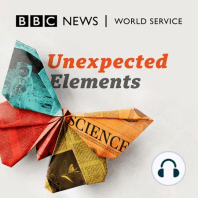60 min listen
Food security, locusts and Covid -19
ratings:
Length:
64 minutes
Released:
Jun 14, 2020
Format:
Podcast episode
Description
Despite the Covid-19 pandemic efforts to counter massive swarms of locusts across East Africa have continued. In many places this has been very effective, killing up to 90% of locusts. However, the threat of repeated waves of locusts remains says Cyril Ferrand, who leads the UN Food and Agriculture Organisation's Resilience Team in East Africa.
Conversely West Africa is unaffected by locusts and with a block on imports local producers have seen demand grow for their produce, an unusual positive effect from the pandemic according to Sandrine Dury from the French agricultural research agency CIRAD.
We examine the potential for a second wave of coronavirus as many countries relax lockdown measures, businesses reopen and mass protests take to the streets. Epidemiologist Carl Bergstrom is interested in working out which of these movements is likely to have the most impact.
And from South Africa, how radio telescope engineers there have turned their hands to developing new ventilators appropriate for regional needs.
And we were bowled over by a question from one CrowdScience listener in Australia wants to know how likely it is that the atoms in his body have been used in someone else’s body? We all like to think we are unique; no one is quite like us. But is that really true?
Presenter Marnie Chesterton tackles Moshe’s question with help from every area of science. From geologists helping us work out how many atoms are on the Earth’s surface to biologists helping us work out how many atoms each body uses. Perhaps we are much less special than we think.
Conversely West Africa is unaffected by locusts and with a block on imports local producers have seen demand grow for their produce, an unusual positive effect from the pandemic according to Sandrine Dury from the French agricultural research agency CIRAD.
We examine the potential for a second wave of coronavirus as many countries relax lockdown measures, businesses reopen and mass protests take to the streets. Epidemiologist Carl Bergstrom is interested in working out which of these movements is likely to have the most impact.
And from South Africa, how radio telescope engineers there have turned their hands to developing new ventilators appropriate for regional needs.
And we were bowled over by a question from one CrowdScience listener in Australia wants to know how likely it is that the atoms in his body have been used in someone else’s body? We all like to think we are unique; no one is quite like us. But is that really true?
Presenter Marnie Chesterton tackles Moshe’s question with help from every area of science. From geologists helping us work out how many atoms are on the Earth’s surface to biologists helping us work out how many atoms each body uses. Perhaps we are much less special than we think.
Released:
Jun 14, 2020
Format:
Podcast episode
Titles in the series (100)
Embryoids from stem cells: Embryoids from stem cells; water vapour in atmosphere of rocky exoplanet by Unexpected Elements
